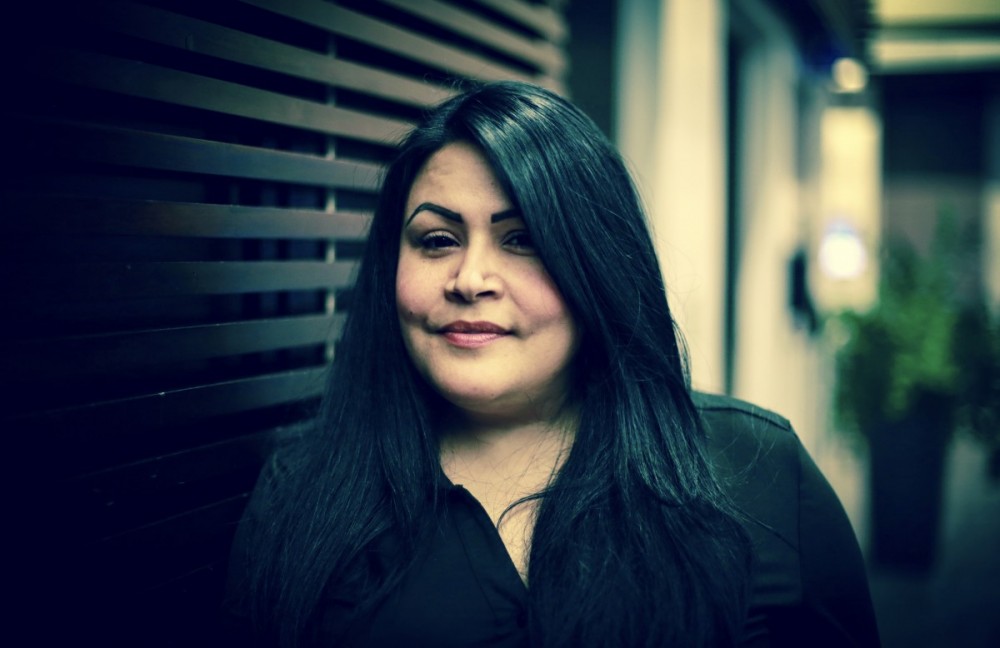It may sound defeatist, but I tell myself this almost every day: "you can't have it all." And it's true. As a mother of four children ranging from three to 15 years of age, as a career-driven woman who loves her work, and as a community activist, I can't have it all.
I like to remind myself of this when I drive to work in my house slippers.
I like to remind myself of this when banana pancakes on a Saturday morning turn into an epic fail and we have instant oatmeal instead.
I like to remind myself of this when I look down at my phone during a meeting to find a text from my partner that reads "SOS! Amir pooped in his pants and he tried to 'clean up' by using ALL of his clean clothes."
I like to remind myself of this when I conclude a work presentation I feel great about only to get the question, "who watches your children when you're out of town?" instead of an exchange about the content I've just delivered.
I tell myself I can't have it all because having it ALL is unattainable. I'm not perfect, nor do I aspire to be. After experiencing burnout that quickly spiralled into one of the most difficult phases of my life, I have a better understanding of my limits.
At the time, I was holding several leadership positions in my union, was an active community volunteer and worked as a public servant during the Harper era. I was also involved in my first-born son's school and didn't miss a football practice, game, or piano lesson. I had control and final say of every aspect of his life.
As if working as a public servant during the Harper era wasn't exhausting enough, let's throw some curve balls into the game just for fun. I was pregnant, my contract, after nearly four years of service, was threatened by mass job cuts, and I was faced with serious health issues. We all know that when it rains, it pours, so let's add relationship strains into the mix and we have the recipe for a gargantuan mess.
At the time, my mentality aligned more with "don't let them tell you that you can't have it all." I was in this perpetual state of proving myself. I could see the hesitation in the eyes of friends and colleagues alike. I used that hesitation as my motivation to exceed what I thought were their expectations of me.
I would tell myself that I was doing this for me and I had nothing to prove to others, but would ignore how enervating it was, all the while keeping it to myself and working through the exhaustion alone.
Life, at the time, felt like a never-ending marathon. I was running towards a moving finish line. "Having it all" was impossible to reach.
Sexist Canadian policies and practices lacking an intersectional lens already leave women like me in the margins. Women of colour have to navigate tremendous obstacles through various systems of oppression to enter the workforce, let alone stay in it long enough to establish a career.
At home, women are also expected to carry the weight of emotional and domestic labour for their families.
Back then, while I was navigating various layers and degrees of systemic racism and sexism in my workplace and union, at home I was also the lead in scheduling, food preparation, shopping, play dates and date nights.
I did all of that with a smile, I should add, because I bought into the fallacy of women being able to have it all.
Today, I still cannot say that I have achieved a comfortable work-life balance. I can say that my partner and I have a deeper understanding of one another and that we've balanced our domestic duties in a more realistic way.
My partner and I didn't always have the rhythm we do today. It wasn't until the tables turned out of necessity that my partner really understood how the imbalance in my home life and my work and activism led me to a hospital bed, years prior.
I vividly remember a conversation between the two of us where he declared his outrage for unpaid domestic hours and that he felt like he was working two full-time jobs. It started with this:
"I think I clocked 60 work hours already and it's only mid-week," I said to him over the phone.
"Me too," he said.
I laughed and said, "No, I'm serious."
"Same here," he said in an ever-so-matter-of-fact way. "I've clocked 25.5 hours at work during the day, and I have the evening routine with the kids. All by myself. Four of them. And there seems to be a delay in receiving my pay cheque for this new second job."
I didn't know whether to laugh or cry because until that moment, a great part of my hitting rock bottom was attributed by others to me not taking time for myself. While that's partially true, after 13 years of parenting, there were no sweeter words than "domestic work is work — and it's hard work," which is what I heard my partner say that day.
This new balance at home helps me navigate my workplace with a little more ease, but the reality is that my "rock bottom" gave me the rude awakening I needed: there's no such thing as having it all.
When I first realized this, I didn't accept it as the positive and liberating lesson I see it as today. I spent a great deal of time grieving. I couldn't explain what I thought was on the other side of that finish line that I never managed to reach, but it took time for me to put that mentality to rest.
Today, I tell myself that I can't have it all as a way to manage the expectations I set for myself. I'm learning that I don't have to conform to societal expectations of having to do everything perfectly and with a smile.
I don't aim to have it all anymore. I aim to have what it takes to be more authentically me — a working mom of four who is just as determined to get those banana pancakes right as she is about her leadership role in the labour movement.
Our Times would like to thank Lauren Baert and Christo Aivalis for suggesting we do an article about the barriers to participation that women encounter at work and in their activism when children enter their lives. Check out the upcoming issue of Our Times, where you'll find more women sharing their hard-won experience navigating the often conflicting roles of work, activism, and parenting.
Mojdeh Cox is the national director of anti-racism and human rights at the Canadian Labour Congress. When she isn't smashing the patriarchy with her fellow trade unionists, she is an award-winning leader in community popular education specializing in design and facilitation of anti-racism and anti-oppression workshops.
Mojdeh lives in Ottawa with her partner and their four children.















